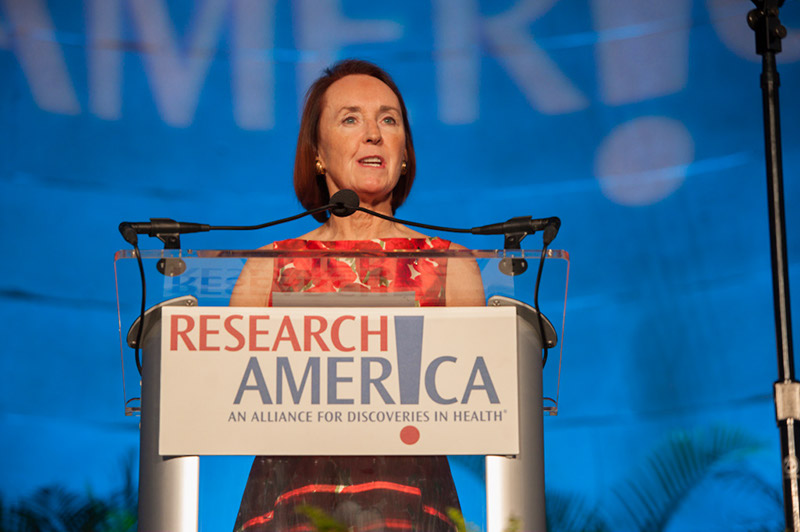Don’t Settle for Stasis

Dear Research Advocate,
With new rumors surfacing daily, it’s difficult to gauge the odds of Congress and the Trump Administration completing FY20 appropriations this calendar year. We are now anticipating another short-term CR that will flat-fund government into December, buying a bit more time for final negotiations. If those negotiations fail, the options become yet another CR or a government shutdown.
None of these scenarios serves the public interest. Imagine if federal agencies couldn’t adjust spending to jettison what is not working and invest in what is. Imagine if there were resources to seed the kind of medical and public health progress that saves lives, yet those resources lie dormant. That’s what at stake here. Don’t settle for stasis, speak up. Join our #CRsStopProgress campaign.
Beyond FY20 appropriations, other research-relevant issues, like reauthorization of the Patient-Centered Outcomes Institute (PCORI) and repeal or suspension of the medical device tax are trapped in the same gridlock that has reportedly ground the appropriations process to a halt.
For a bit of inspiration in your advocacy: this report in Science magazine discusses promising advances neuroscientists are making in the battle against Alzheimer’s disease. For more on the toll Alzheimer’s is taking and the promise research holds, download our recently-revised fact sheet on Alzheimer’s disease.
As the surveys we commission routinely demonstrate, Americans want faster medical progress. Voters in Texas affirmed that this week by voting to increase funding of the Cancer & Research Institute of Texas (known as CPRIT).
Research!America’s Vice President of Policy and Advocacy Ellie Dehoney commented on the vote to the Dallas Morning News before election day, noting that cancer funding conveys benefits beyond one disease, positioning Texas to build out its entire research enterprise. Importantly (and appropriately), the article ran in the paper’s business section, a good reminder for advocates to discuss both the health and economic benefits of research.
The National Center for Health Statistics (NCHS), part of the CDC, has released their annual report, “Health, United States.” The news, both positive (e.g. infant mortality rates are down) and negative (e,g. drug overdose deaths, especially among middle-aged men, are up), is yet more evidence that research works, and is needed.
NCHS is hosting a webinar a week from today to review the data (November 14, 2019 at 3 p.m. ET) via Skype or phone. Complete information and past reports about the findings are available on the “Health, United States” webpage. If you’d like to brainstorm tweets, emails and other advocacy outreach using the NCHS data, contact Robert at [email protected].
Research!America Alliance members: please join us on November 18, 2019 for our monthly meeting. Our featured guest is Adrienne Hallett, Associate Director for Legislative Policy and Analysis with NIH. One of the topics we’ll discuss, as Congresswoman Diana DeGette (D-CO) and Congressman Fred Upton (R-MI) consider legislation building on their 21st Century Cures Act, is the impact of the NIH-specific provisions within that landmark law. Please contact Jacqueline at ([email protected]) for location and call-in information. We hope to see you on the 18th!
Sincerely,
Mary Woolley




